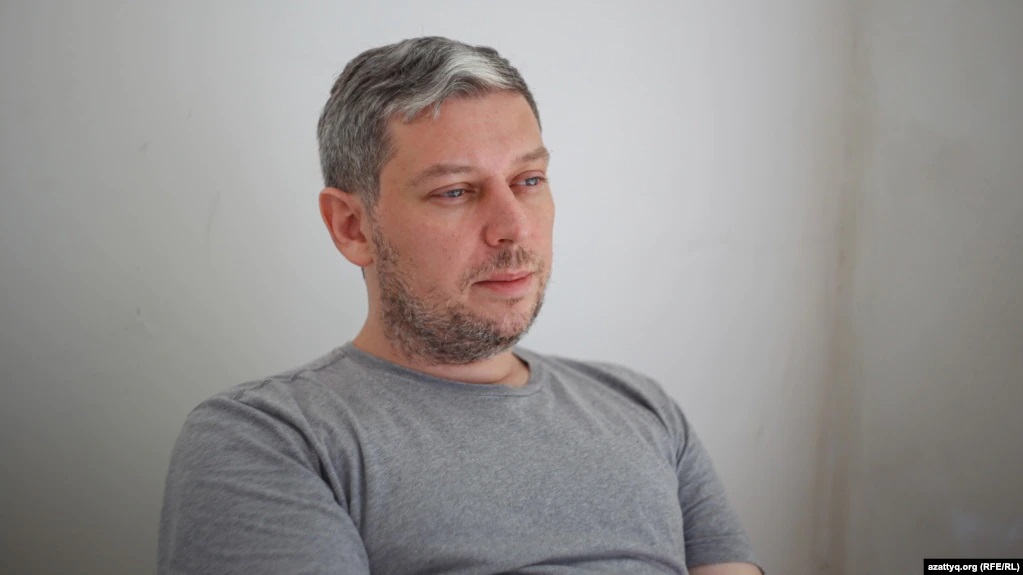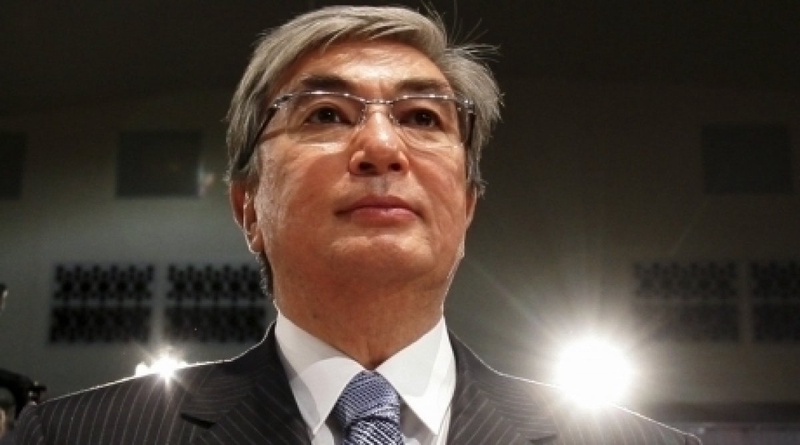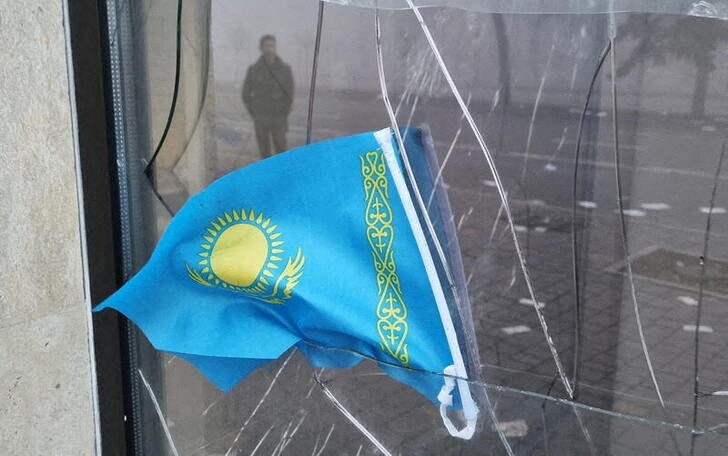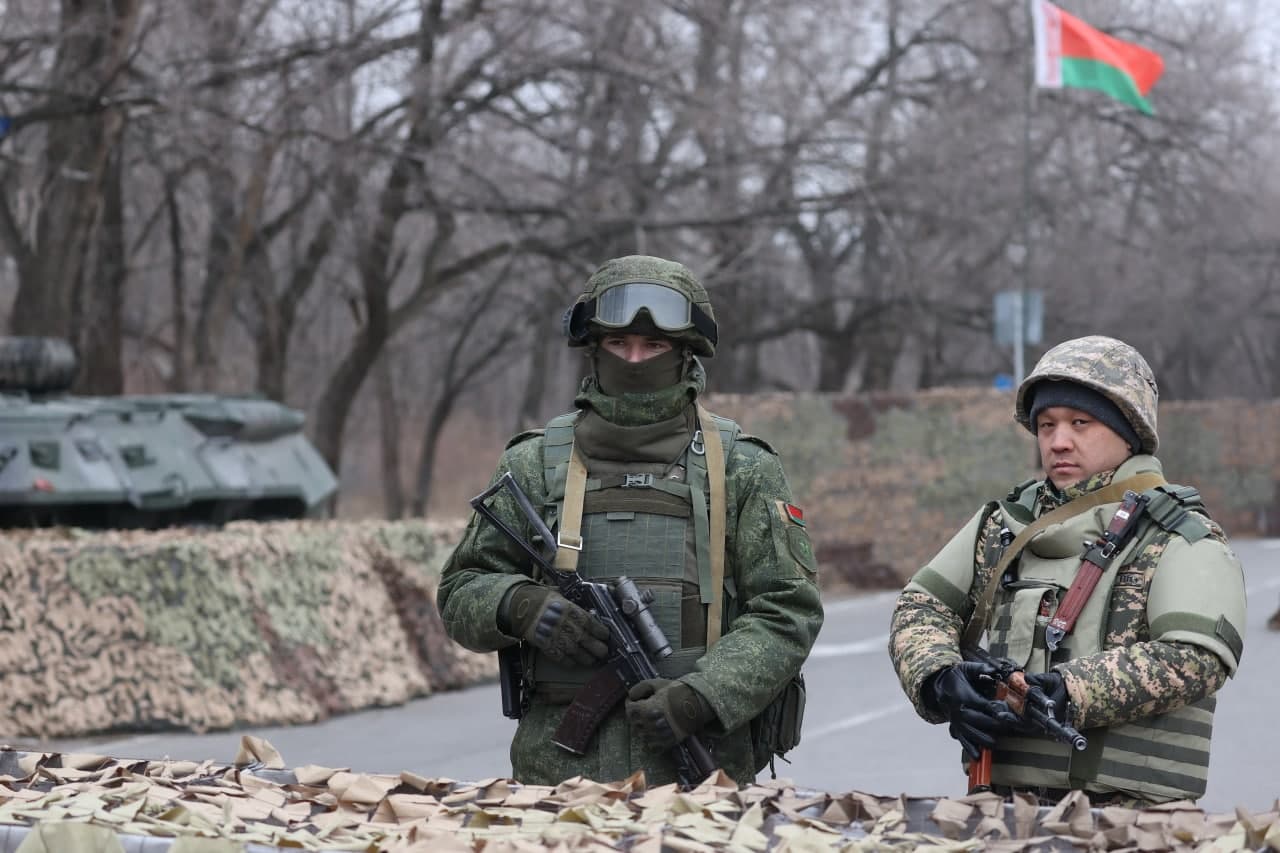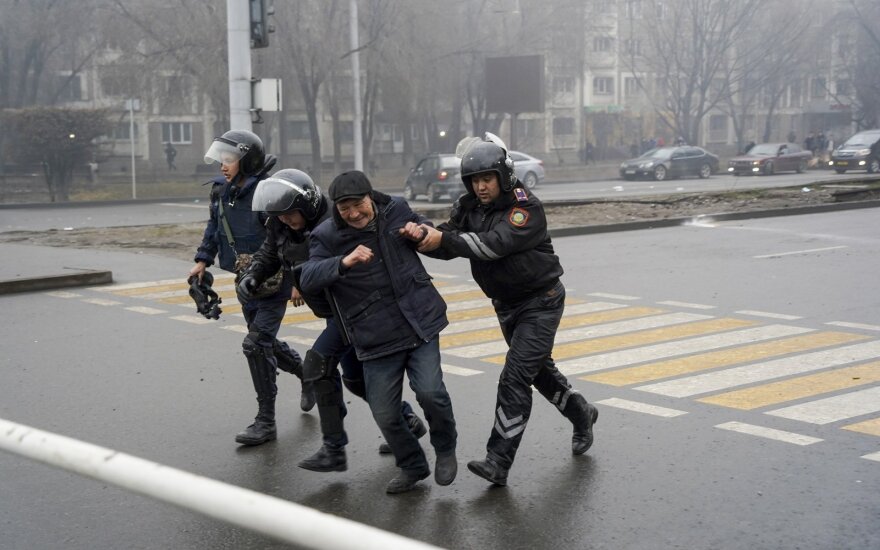Reform or simulation? Kazakhstan's biggest tragedy today
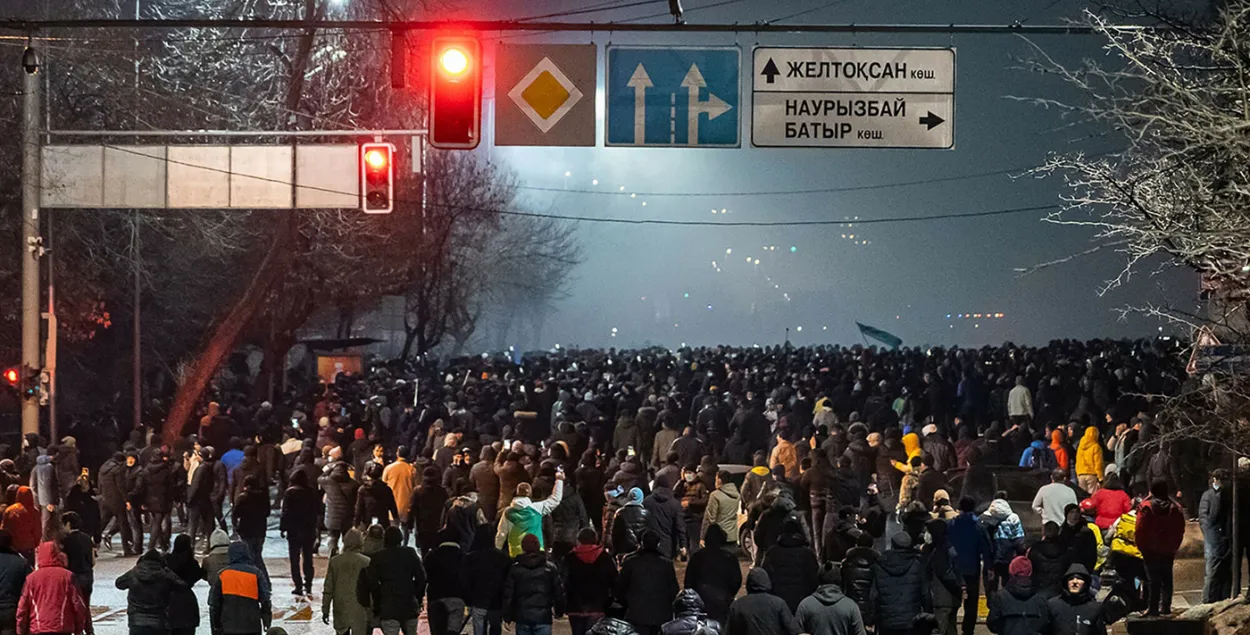
According to official figures, 225 people died in protests in Kazakhstan alone / Ruslan Pryanikov / AFP / East News
After the protests in Kazakhstan, President Kassym-Jomart Tokayev has been gaining more and more power, while Nursultan Nazarbayev has begun to be forgotten.
This is accompanied by numerous questions: whether Tokayev arranged the protests, how the involvement of CSTO troops will affect relations with Belarus, whether Russia will increase its influence on Kazakhstan, and how do ordinary people feel?
Euroradio has met with a journalist and general director of Vlast.kz Vyacheslav Abramov to examine these issues and understand what Belarus and Kazakhstan have in common.
Euroradio: We are observing the dismissal of Nazarbayev's relatives and cronies from key positions. Can we say that Tokayev has started to clean up Nazarbayev's clan?
V. A.: I believe these are several parallel processes. The slogan of thousands of people protesting peacefully in the streets at the beginning of January was: "Go away, old man". If no reaction follows, it will be strange at the very least.
The Nazarbayev family members understand that it's time to leave their positions. And there is a matching request from President Tokayev and his entourage. Getting rid of people who ceased to please society will be useful for the people in power.
I think some conversations are taking place between the people who are currently making decisions and those who made them some time ago. The results of those conversations or negotiations are translated into resignations. Within a short time, we will not see any members of the Nazarbayev family in power. This is a clear signal that is there, no matter who initiated this process.
Euroradio: The strengthening of the Tokayev figure is very noticeable. Aren't the bloody January events connected with the fact that power is concentrated in his hands?
V. A.: There are very different versions. As an investigative journalist, I cannot say that any of these versions is more accurate or closer to reality. We don't have full information about what happened, even though we are inside the country, even though we are in Almaty.
According to the authorities, the organizers of these events are still not clear or named. We haven't been told who supported the "international terrorists" we heard about since the first day.
Probably Tokayev managed to get rid of some people who could theoretically make him nervous because they possessed colossal power. At the same time, Tokayev was traumatized by an entire society. These are the bloodiest events in the 30-years history of Kazakhstan. According to official data, 225 people have died.
I don't think that any man in his right mind is ready to question his presidency and mark his place in history by such events. But it is definitely too early to answer.
Euroradio: Does Tokayev have public support?
V. A.: Tokayev has always had support. The man automatically received support from part of society, which is used to supporting people in power.
But looking at many people I saw that they have quite a lot of sympathy for Tokayev. He is perceived as a very intelligent, humane, decent ruler. As a man who is not after money. A lot of people felt even more sympathy for him during the pandemic because he didn't hesitate to wear a mask and talk to people in a human language.
In the almost three years of his presidency, he has always tried to respond to criticism, to the demands of society. It seems to me that he believes he has made some serious political reforms which, for example, human rights activists would not call serious.
But people noted positively such things as humanity, great openness. It was something that the former president lacked in recent years. It was a general detachment from reality. Very similar to what we are witnessing in Belarus. When there is a small group around you and the eye can't see beyond this group.
I think that the fervor of sympathy to Tokayev will gradually wane. While we can imagine that Tokayev is personally against torture (I'm sure he is) and he is personally very much in favor of economic, social, and maybe even political changes, the officials remain just as clumsy. They are unlikely to rush forward like a rocket to change the country.
So when more information about torture emerges, or when some programs are not implemented, sympathy will drop a little bit.
Euroradio: Lukashenka said that he and Putin came up with the CSTO mission deployment plan to Kazakhstan literally within an hour. How was the introduction of CSTO troops perceived by the people of Kazakhstan and has the attitude toward Lukashenka and Putin changed?
V. A.: There were quite a few people who did not support this decision because there was no full information about what the peacekeepers would do. There was a very great fear that they would participate in operations against people on the streets, that they would have no pity, and so on.
V. A.: The situation is unpredictable. We don't hear any more shooting in the streets. We see a change of faces, but these are people from the system. And we see an investigation that is very nerve-wracking.
There are facts of beatings and ill-treatment, torture of detainees, from whom they beat out confessions that they had arranged the mass disorder. I think the task for the Kazakh society is to stop torture, to achieve reforms.
There is a desire for change in society. The protests happened because of social inequality, the huge gap between the rich and the poor, the disproportion between the regions, the lack of opportunity to express your opinion, no matter how much the state declares that it hears people.
One would hope that in the coming weeks we will see steps on the part of the state toward the new social contract that Tokayev spoke of. But my journalistic realism suggests that we won't see it after all. Most likely, there will be a return to somewhere back where there are cosmetic reforms and there are some critics who allow themselves to say that something is not working.
And there's a main front -- the state bodies whose work is aimed at making the apparatus work and the system exist. It is impossible to say where Kazakhstan will be able to come in the end.
